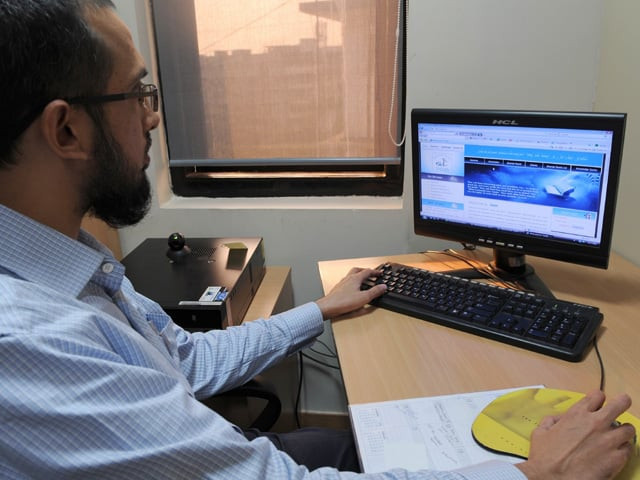Kosher investment: India woos Muslim with new stock index
India takes a step towards financial inclusion with the creation of a new index compliant with Islamic law.

The Bombay Stock Exchange launched the Tasis Shariah 50 late last year in an attempt to open stock-trading to more of the country’s vast Muslim population. “The intention is to reach out to the Muslim community which has historically been less involved in India’s equities,” James Shapiro, head of market development at the Bombay Stock Exchange (BSE), told AFP.
“To grow your business, the stock exchange has to be more inclusive. One cannot keep growing on a very thin layer of very rich people trading,” added Shapiro, a former New York Stock Exchange head of foreign listings.
Experts have blamed a lack of political will in Hindu-majority India for the failure to promote Islamic finance, despite the country having 170 million Muslims, the world’s third-highest number.
Stock investment is still nascent in India with just one percent of the 1.2 billion population overall investing in shares. For Muslims, who are poorer and less educated than Hindus according to official figures, the percentage of investors is much less, estimated at at 0.5 percent of the community.
The 50 stocks on the new index have been cleared by a top Mumbai-based Islamic law firm, Taqwaa Advisory and Shariah Investment Solutions (Tasis), as compliant with the investment rules of the Islamic legal code.
Aziz Jadwet, 38, who studied Islamic finance at an institution in Dubai, said he believed many Indian Muslims who were previously hesitant about stock investments would feel more confident about investing using the Tasis index.
The Islamic law firm vets listed companies to determine whether they derive benefits from interest or the sale of “sinful” goods and services like alcohol, gambling, tobacco, weapons or pork products, prohibited under Islamic law.
But the index still has many heavyweights, including firms like auto giants Bajaj Auto and Maruti Suzuki, generic drugmaker Dr Reddy’s Laboratories, software outsourcer Wipro and India’s largest private firm Reliance Industries.
“We believe the Tasis index is superior” to many rival indices elsewhere “as stocks screening is more conservative and better tuned to achieving shariah objectives,” added Mohammed Hussain Khatkhatay, a Tasis senior adviser.
Standard and Poor’s and Dow Jones are among companies abroad which run shariah indices.
Companies in India have also been chosen based on their financial strength, while each stock has a maximum weight of 8.5 percent in the index which Khatkhatay said should reduce the risk of volatility.
Published in The Express Tribune, February 14th, 2011.



















COMMENTS
Comments are moderated and generally will be posted if they are on-topic and not abusive.
For more information, please see our Comments FAQ